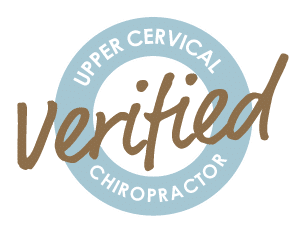
Chiropractic treatment is a non-invasive and drug-free approach that has shown promising results in addressing symptoms related to headaches, neck pain, and dizziness.
Headaches: Chiropractic care has been found to be effective in reducing the frequency, intensity, and duration of various types of headaches, including tension headaches and migraines. Key points to consider:
a. Spinal Manipulation: Chiropractors often use spinal adjustments to improve spinal alignment, relieve tension, and reduce nerve irritation, which can be contributing factors to headaches.
b. Muscle Relaxation: Chiropractors may employ techniques such as massage, trigger point therapy, and stretching to relax tense muscles in the neck, shoulders, and upper back, which can alleviate headache symptoms. c. Lifestyle Recommendations: Our doctor may provide guidance on posture correction, ergonomics, stress management, and nutritional advice to help identify and address potential triggers for headaches.
A trial published in 2019 in the Journal of Manipulative and Physiological Therapeutics demonstrated that chiropractic adjustments resulted in a significant 49% reduction in headache frequency and a 24% reduction in headache intensity.
Neck Pain:
Chiropractic care has shown effectiveness in addressing acute and chronic neck pain by targeting the underlying causes and promoting natural healing. Consider the following:
a. Spinal Adjustments: Chiropractors perform specific adjustments to restore proper alignment and mobility to the spine, reducing inflammation and relieving pressure on nerves, which can contribute to neck network error There was an error generating a response Regenerate response.
b. Soft Tissue Therapies: Chiropractors may employ techniques such as massage, myofascial release, and stretching to alleviate muscle tension and address soft tissue injuries that contribute to neck pain. c. Rehabilitation Exercises: Chiropractors may prescribe specific exercises and stretches to strengthen the neck muscles, improve flexibility, and promote proper alignment, helping to prevent future episodes of neck pain.
Dizziness: Chiropractic care can also help address dizziness and vertigo, which can result from various factors, including vestibular system dysfunction and cervical spine imbalances:
a. Alignment of the Cervical Spine: Focusing on the alignment of the cervical spine, as misalignments or restrictions can impact the vestibular system, which plays a crucial role in balance. Adjustments targeting the cervical spine can relieve joint restrictions and imbalances that may contribute to dizziness. By performing precise adjustments, chiropractic care can help restore proper alignment and optimize the function of the vestibular system.
b. Reduction of Nerve Irritation: Nerve irritation or compression in the neck region can contribute to dizziness and vertigo. Chiropractic adjustments can alleviate this irritation by relieving pressure on nerves and improving communication between the brain and the body, potentially reducing dizziness symptoms.
c. Vestibular Rehabilitation Exercises: Chiropractors may incorporate vestibular rehabilitation exercises as part of the treatment plan. These exercises aim to improve balance, and coordination, and strengthen the muscles that support the vestibular system, helping individuals adapt and recover from dizziness and vertigo episodes more effectively








